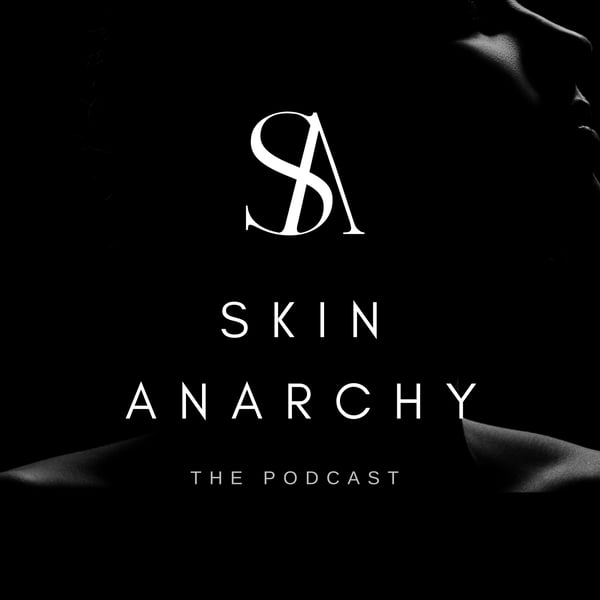Discover the Beauty Secrets of Africa with Eni Culture's Founder Nkonye Iwerebon
Skin Anarchy
Ekta et al.
4.2 • 2K Ratings
🗓️ 28 October 2024
⏱️ 31 minutes
🧾️ Download transcript
Summary
In this captivating episode of Skin Anarchy, host Ekta Yadav chats with Nkonye Iwerebon, founder of Eni Culture, to dive into the heart of African beauty traditions and cultural heritage. Nkonye shares how her childhood in Lagos, Nigeria, where natural remedies were integral to daily life, inspired her to create a brand that celebrates the holistic wellness practices of African culture. Faced with a market that often overlooks the potency of natural African ingredients, Nkonye set out to bring the power of ingredients like shea butter and moringa to the forefront.
Eni Culture, as Nkonye explains, is more than just skincare; it’s a connection to cultural heritage. With a mission grounded in ethical sourcing, Eni Culture partners with smallholder farms in Eastern Rwanda, ensuring premium ingredients while supporting local communities. One of the brand’s highlights, the Safi Revitalizing Face Oil, combines just ten pure ingredients, including moringa and passion fruit oils, delivering nutrient-rich hydration for radiant skin.
Nkonye also touches on the broader impact of African beauty, or A-beauty, advocating for its place on the global stage. She emphasizes that African beauty is not only clean and powerful but also steeped in centuries of wellness wisdom, offering a unique, enriching experience. Tune in to discover how Eni Culture is redefining luxury skincare by honoring African heritage and empowering consumers to embrace wellness from within.
To learn more about Eni Culture and to shop their products, visit their website and social media. Don’t forget to subscribe to Skincare Anarchy on Apple Podcasts, Spotify, or your preferred platform. Reach out to us through email with any questions.
Hosted on Acast. See acast.com/privacy for more information.
Transcript
Click on a timestamp to play from that location
| 0:00.0 | Hey guys welcome back to another episode of Skin Anarchy. This is your host |
| 0:05.9 | Exa and I'm really really excited to introduce you guys to this brand today |
| 0:09.9 | that we're featuring because I think that when it comes to understanding beauty, especially skin and our needs and you know as they're changing and evolving, it's really great to be able to learn from various cultures, various traditions, various knowledge, you know, that we have globally available to us, |
| 0:26.0 | but we rarely see, you know, really come up in the beauty industry. |
| 0:30.0 | And so very excited about the brand which many of you might know any culture and the |
| 0:34.6 | founders with us today in Konei and ever mom. Welcome to the show in Konei I'm so |
| 0:38.9 | excited to chat with you. Thank you so much Ekeh, Ekeh, I am thrilled to be here and to talk to your listeners about any culture. |
| 0:48.0 | Yeah, I'm really really excited about, you know, just learning from you because as I said you know I don't think we can ever |
| 0:54.8 | learn enough about just like global remedies and global approaches to skin health you know I think |
| 1:01.1 | there's so much to learn and when I come across a brand that's really kind of shining a light on a new approach or just ingredients like it always intrigues me, you know, and from that angle I'm very excited, but I'd love to learn about you and |
| 1:13.6 | Kone what inspired you to create any culture and you know just get into the beauty |
| 1:18.4 | space? Yeah no that's a great question. Well, you know, I grew up in Lagos, Nigeria, |
| 1:25.2 | and even though I've lived in the US since college, |
| 1:28.1 | basically, Nigeria has always remained part of me. |
| 1:32.1 | I go back often to visit family and each visit brings back this deep |
| 1:37.6 | nostalgia for the traditions, for the beauty and the richness of my cultural heritage. |
| 1:45.0 | I was raised with a mix of traditional remedies |
| 1:47.8 | and allopathic medicine in addition, |
| 1:50.4 | and sometimes in addition to more maybe instead of conventional medicine my mom would use what |
| 1:58.1 | traditional remedies she had available for mild ailments at times she might use a concoction of herbs for fever or |
| 2:06.2 | or palm oil with sugar for a cough and apply clay to heal a rash. And of course, |
| 2:12.3 | Shay butter was the go to for for sewer muscles or bumps on the skin and these remedies were a part of everyday life even now I still use a traditional Nigerian sponge that's made from the bark of an invasive plant for exfoliation. |
... |
Please login to see the full transcript.
Disclaimer: The podcast and artwork embedded on this page are from Ekta et al., and are the property of its owner and not affiliated with or endorsed by Tapesearch.
Generated transcripts are the property of Ekta et al. and are distributed freely under the Fair Use doctrine. Transcripts generated by Tapesearch are not guaranteed to be accurate.
Copyright © Tapesearch 2025.

